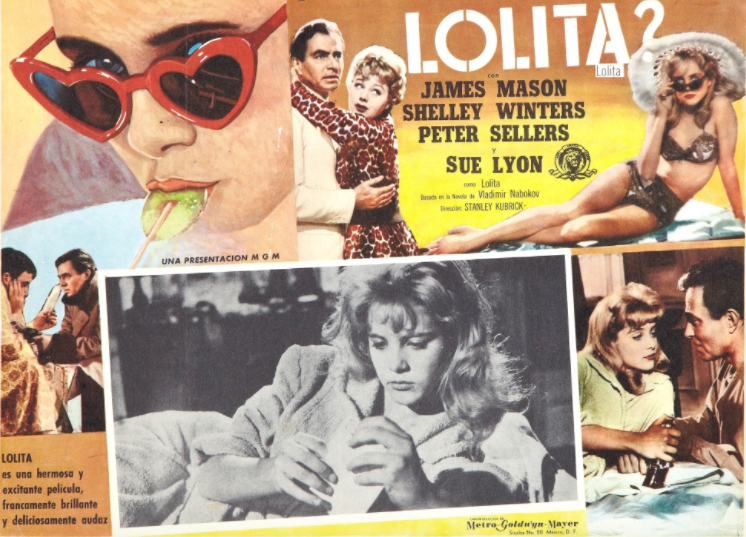“We are not sex fiends! We do not rape as good soldiers do. We are unhappy, mild, dog-eyed gentlemen, sufficiently well integrated to control our urge in the presence of adults, but ready to give years and years of life for one chance to touch a nymphet. Emphatically, no killers are we. Poets never kill.”
Vladimir Nabokov is, put simply, a genius of words and a master of storytelling. His most (in)famous masterpiece continues to be banned in several countries and schools across the nation. Known more for its taboo content than its artful prose, it remains a much debated work. Lolita details the confessions of Humbert Humbert, a handsome and diseased scholar, hopeless prey to the corrupt seduction of nymphism. In short, he is a pedophile. After falling desperately in love with his neighbor’s 12 year old daughter, the spry and irresistible image of youth, he marries her mother to be closer to her. When the opportunity arises, he takes Dolores “Lolita” Haze with him across the country, holding her captive in the name of love.
The book is narrated by Humbert Humbert, written as a criminal’s defense to the jury and the confession of a man whose perversion was his only reality and his inescapable burden. It is the story and testimony of a man who wants nothing more than society’s understanding and pardon. It is a book that can be and should be read over and over again, as each additional reading is a stronger incentive to look up those words you were too engrossed the first time around to look up, a shocking revelation of a new clue solving the mystery of the story that had escaped you the first time around, an amusing discovery of an inside joke between Humbert Humbert and Nabokov you had not picked up on before. It is a book that brings with it a new moral judgment each time around.
Lolita is undeniable proof of the brilliance of its author, lepidopterist and polyglot, who aptly and profoundly penetrates the mind of a character so despicable and who induces the reader to sympathize with a man of such morally reprehensible and perverted habits and tendencies. The narration is delightfully playful, dangerously seductive, hypnotically lyrical, and irrefutably dangerous. The ingeniously nuanced wordplay is for the reader who loves words and play, who enjoys Nabokov’s provocative whispers of mysterious hints. It is a story of heartbreaking angst, deluded obsession, overwhelming lust, and questionable love, a devious account of double-edged manipulation and the defiling of beauty.
The reader, captivated by Nabokov’s storytelling capacities, is left to debate Humbert’s reliability as a narrator, a question intensified by unambiguous signs of his delusion, and to reconcile the disquietude of voyeurism with the seduction of the scene unfolding in the pages before her. The conflict between moral rectitude and physical appeal is painfully difficult, but the lure of fiction, the aesthetic bliss of a story and its tantalizing tangle of thorns unquestionably remains far too strong for the faint-hearted reader to resist. And thus, down we descend, into the miserable flames of depravity.






